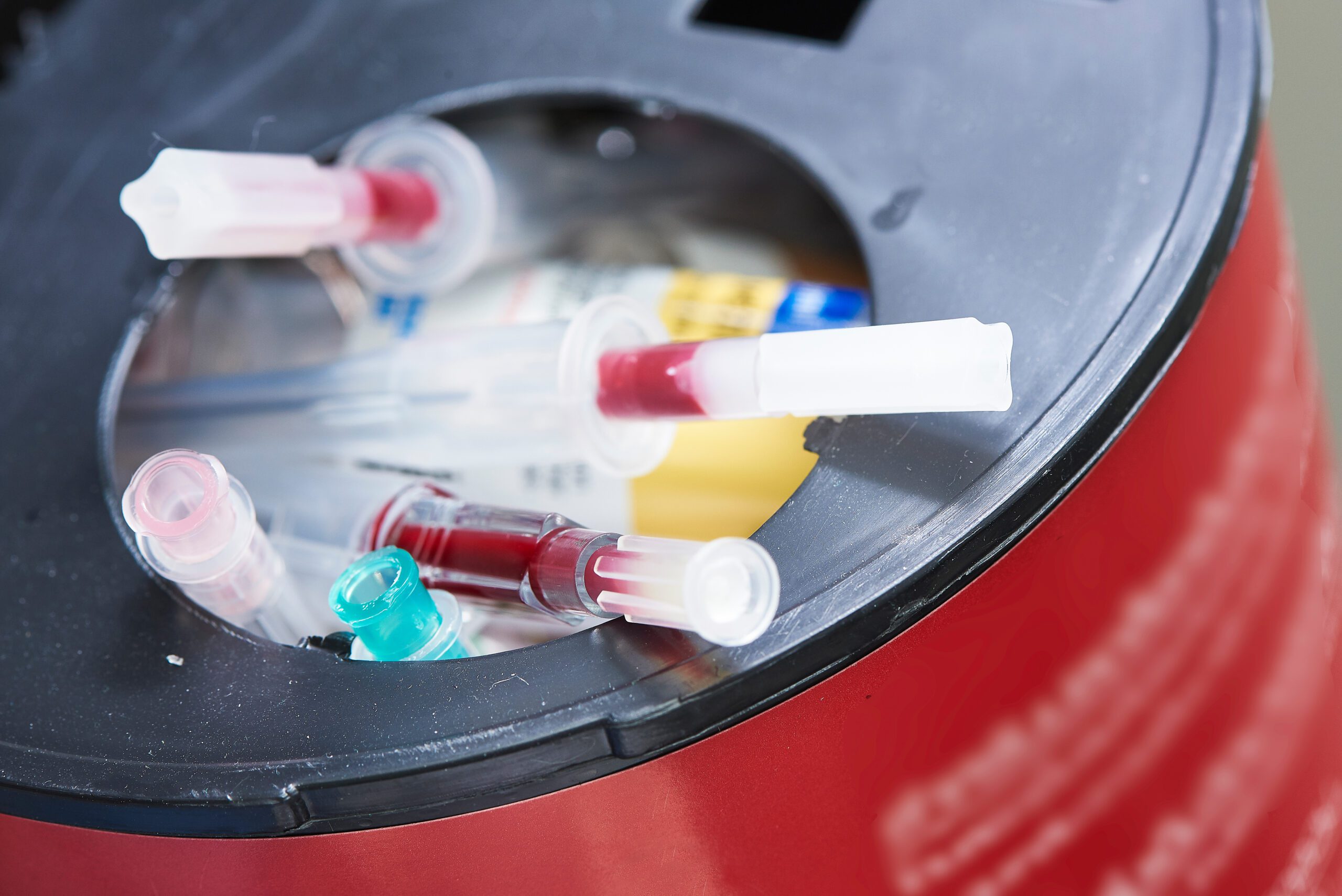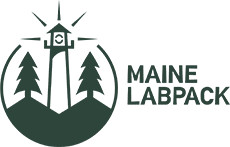
As a medical waste, sharps disposal regulations by state can vary considerably. Though federal agencies issue guidelines, protocols, and mandates for the safe disposal of sharps, every state has its disposal guidelines or requirements for safely handling, storing, and disposing of sharps. The laws governing how sharps are disposed of in Maine differ from those in Massachusetts, which are different from those in any other New England state.
Perhaps the one commonality shared by federal and state regulations is that once a sharp has been used, it is recognized as a medical waste that needs to be safely disposed of. How that is accomplished may differ, but everyone agrees as much for the common good as by common sense that safely disposing of sharps helps protect the public and the workers that handle them from possible infectious disease transmission and unnecessary injury.
What Are Sharps?
As the name suggests, a sharp is a medical term that refers to any medical device with a sharp edge or point that can cut or puncture the skin of people or animals. This would include familiar devices such as needles and syringes for injecting or withdrawing fluids into or from the body. Other devices include lancets, auto-injectors, infusion sets, and connection needle sets. For administering a vaccine or blood test, treating allergies or diabetes, or delivering meds, sharps are widely used for various medical conditions and applications.
Once a sharp has been used, it is considered medical waste. Often referred to, by definition, as ‘regulated medical waste,’ medical waste is healthcare waste contaminated by body fluids, blood, or other potentially infectious materials from a person or animal. As a medical device contaminated by body fluids or blood, sharps are regulated medical waste that must be disposed of properly.
Sharps Disposal Regulations by State: Maine
Federal agencies such as the Department of Transportation (DOT) specify packaging and regulate the transportation of medical waste. The Occupational Health and Safety Administration (OSHA) administers Bloodborne Pathogen standards to protect employee health and safety. Centers for Disease Control (CDC) has guidelines to treat or decontaminate medical wastes to reduce the microbial load on the waste to render it safe for further handling. The Food and Drug Administration (FDA) issues recommendations for sharps disposal containers for labs and health care facilities, but also for disposal of needles and other sharps used by individuals at home, on the job, or while traveling. That said, it remains under state jurisdiction to manage and regulate medical waste, generally through a state’s health and/or environmental agencies or departments.
The healthcare industry in Maine uses millions of sharps annually for medical applications and to treat and control medical conditions. Tens of thousands of Mainers routinely use sharps at home to treat diabetes, arthritis, and allergies. It’s against the law in Maine to improperly dispose of sharps in the trash, flush them down the toilet, or stockpile them. Individuals who use home-generated sharps like lancets, syringes, and hypodermic needles to treat chronic conditions are responsible for their sharps disposal in FDA-cleared sharps containers, which are generally available through pharmacies, medical supply companies, health care providers, and online.
The State of Maine recognizes medical waste’s public health and environmental hazards and the potential for transmitting pathogenic and infectious diseases such wastes can carry. Medical waste management in Maine is classified as biomedical waste, and its handling and disposal are subject to regulation by the Board of Environmental Protection. The law requires the registration of biomedical waste generators. It also establishes requirements for packaging, labeling, handling, storage, transportation, and treatment of biomedical waste and licensing all transporters and owners or operators of transfer facilities and treatment facilities. The disposal of untreated biomedical waste is prohibited by law.
Contact Maine Labpack for Biomedical Waste Disposal
Maine Labpack recognizes that each state’s disposal regulations and requirements for biomedical waste differ. We offer comprehensive, no-contract biomedical waste disposal for various generators, such as hospitals, health clinics, research laboratories, physician offices, dental clinics, and veterinarian offices. Following state regulations, our experts on biomedical waste arrive at your facility or site, remove your pre-packaged waste, and supply you with containers for future pickups. In this regard, we ensure that all our customers comply.
To learn more about our no-contract biomedical waste services and how we can dispose of your sharps, please get in touch with us today.
